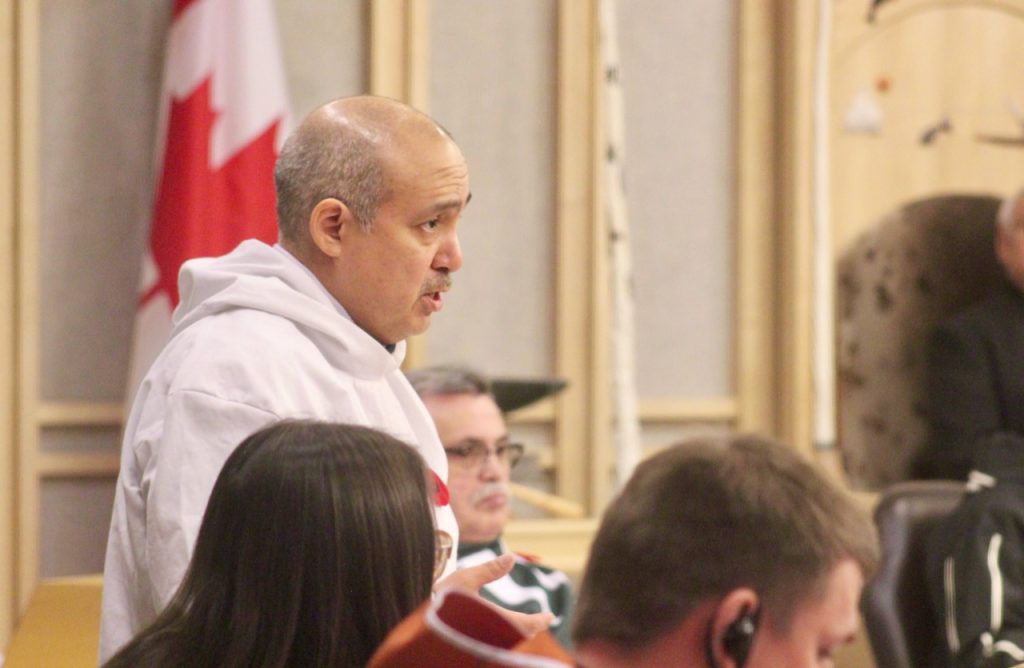
As pressure mounts to toughen Canada’s bail laws, reviews are mixed as to how such changes could affect people in Nunavut.
Conservatives MPs put forward a motion in the House of Commons Feb. 2 pushing the Liberal government to make it harder for people accused of restricted or prohibited firearm offences to get bail.
That motion was defeated last week, but Nunavut Premier P.J. Akeeagok is on record saying he would support such a change.
He signed a letter last month to Prime Minister Justin Trudeau, along with the rest of Canada’s premiers, pressing for the same bail reform. They’d written the letter in reaction to the death of an Ontario Provincial Police officer late last year.
Randall McKenzie is charged with first-degree murder in the death of Const. Grzegorz Pierzchala in southern Ontario. Pierzchala was fatally shot Dec. 27. McKenzie had been out on bail and was banned from owning a firearm.
The letter calls for a “reverse onus” on those accused of restricted or prohibited gun offences to make bail. That means it’s up to the accused to demonstrate to a judge they should be released.
Cassandra Richards, a criminal lawyer who works in Nunavut, said it’s already difficult for people in the territory to be released on bail due to the remoteness of communities and challenges in finding someone to supervise them if they are released.
Such a change would especially impact Inuit hunters whose guns aren’t properly licensed.
“[They] could be captured by this type of legislation,” Richards said.
Nunatsiaq News asked Akeeagok about the letter and how he believes bail reform would impact Nunavut.
Akeeagok deferred his response to the territory’s Justice Minister Craig Simailak, who said the premiers want to ensure Canada’s bail laws balance the rights of the accused with public safety.
“This may include amendments which ensure that repeat and violent offenders are not given an opportunity to re-offend while awaiting trial,” he said in an email statement.
At the same time, Simailak admitted Nunavut is a unique jurisdiction with a unique population and challenges.
“Bail rules that work in southern Canada may not necessarily work in Nunavut, where smaller communities and housing shortages sometimes mean that victims of violent crime must live with or near an offender who is released on bail,” he said.
“Legally acquired firearms are a part of life in Nunavut. They are important tools for hunting, and our premier is aware of the importance of protecting access to this livelihood.”
Nunavut NDP MP Lori Idlout said she is in favour of reviewing legislation to make sure “we deliver better results for Canadians.”
“It is our understanding that the federal government is taking this letter very seriously, as they should,” she said in an email statement.
“As we anticipate the federal government response, our focus remains to ensure that Canadians receive the proper government services.”